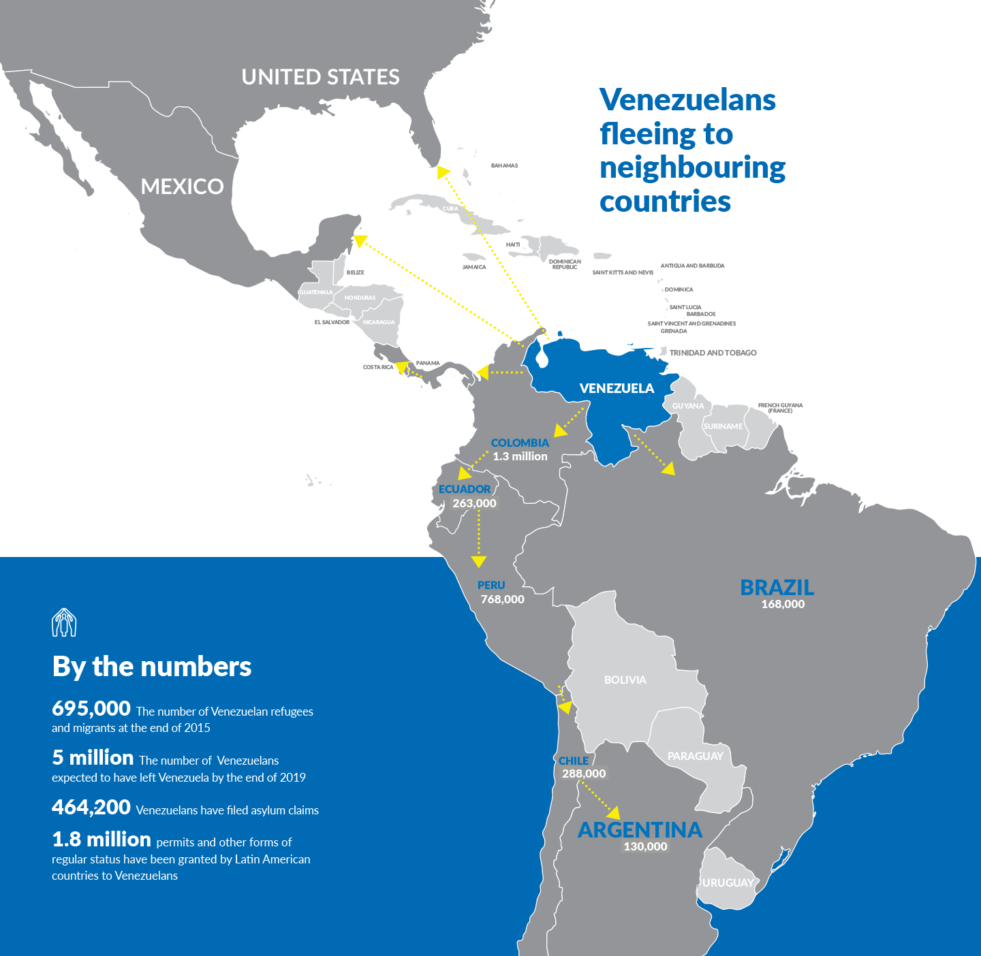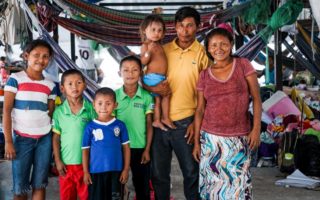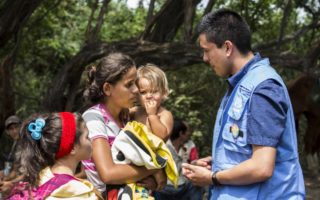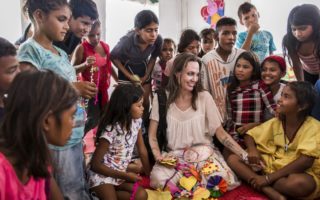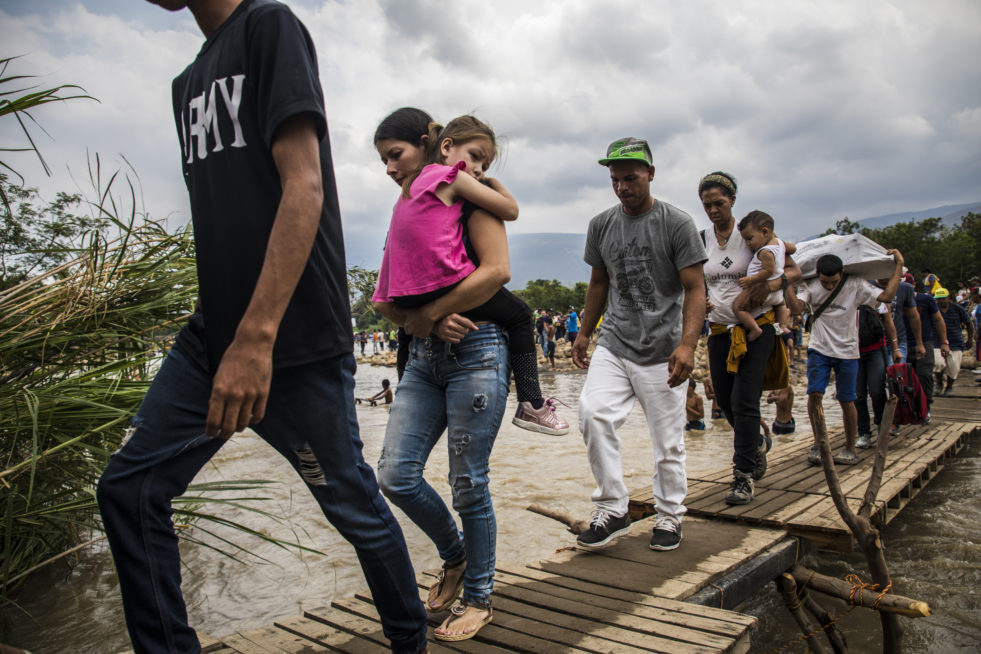
Venezuelans crossing the Tachira River which forms the border between Venezuela and Colombia in April 2019. ©UNHCR/Alejandra Romo
The ongoing emergency situation in Venezuela is one of the largest and most far-reaching of our time. The South American country has been gripped by political and economic turmoil for years. Shortages of food and medicine, a lack of access to medical care, escalating violence and soaring inflation have led to the largest outflow of people in Latin America’s recent history. More than four million Venezuelans—or nearly 10 percent of the country’s population—have fled.
Countless children, women and men have embarked on desperate journeys out of Venezuela, with some crossing rivers in waist-high water in a frantic search for safety and better lives. Several neighbouring countries in the region have made generous efforts to welcome and host Venezuelan refugees. But with an average of 5,000 Venezuelans fleeing the country every day, the capacity of neighbouring countries to adequately host people is being stretched.
What follows are portraits of incredibly resilient Venezuelans forced to leave everything behind, as well as the steps UNHCR is taking to protect them and support host communities.
Annabel’s wish for her family
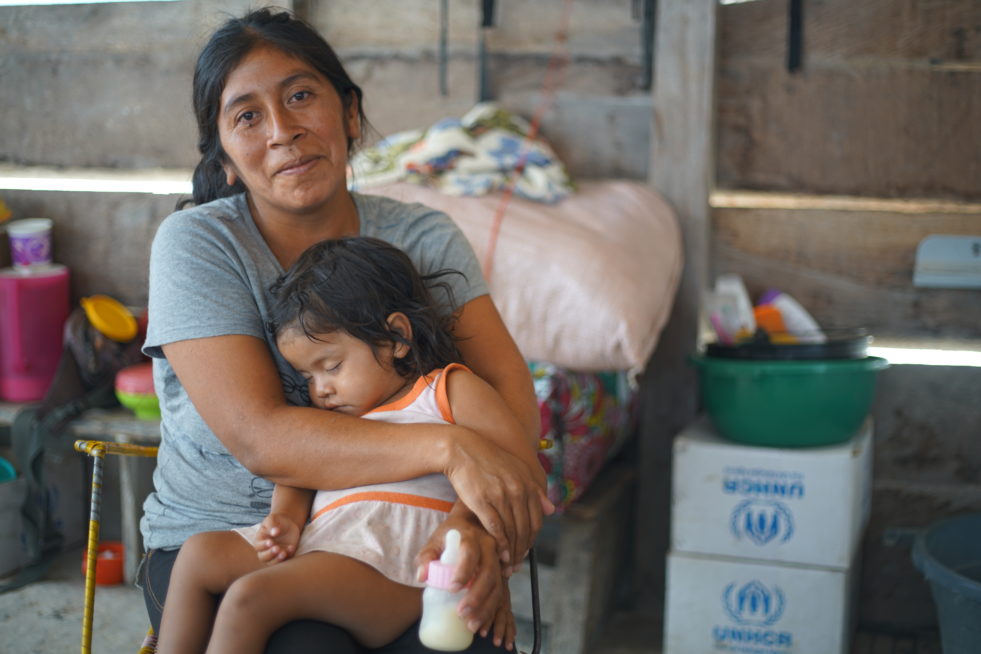
©UNHCR/Viktor Pesenti
Life was once so different for Annabel and her family.
She lived with her husband and five children in a forested community near Venezuela’s Canaima National Park. As part of the Pemon-Taurepã ethnic group—which has called the area home for generations—her family made its living from tourism, helping guide visitors to some of the country’s natural wonders.
“Each day, I woke up with happiness, and then started my work,” said the 28-year-old.
Life suddenly changed in late February, when a local protest turned deadly. Armed groups attacked the community, and panic spread throughout the area.
Fearing for the safety of her children—who range in age from one to 11 years old—Annabel and her husband, Levy, were able to gather only bedsheets, clothing and a hammock before departing for the Brazilian border. Soon into their journey, others who were fleeing warned them that they couldn’t take the main road toward the border, so they chose a difficult, unmarked route through the hills.
As evening fell, Annabel and her family reached a small village on the border, called Tarauparu. The community members—who are also part of the Pemon-Taurepã ethnic group—welcomed them immediately.
Since the wave of violence in February, adequate shelter is increasingly scarce in Tarauparu. The small village’s population, usually home to only 263 people, has quadrupled with the arrival of 836 Venezuelan refugees seeking safety. Yet, with help from UNHCR and other organizations, the people of Tarauparu are showing incredible hospitality and have risen to the challenge.
UNHCR began helping soon after refugees started to arrive, delivering mattresses, blankets, kitchen sets, hygiene supplies, shelter materials, food, and other lifesaving assistance.
For the near future, Annabel wishes for her own shelter so that her family can have privacy and time to just be together. UNHCR is working with village leaders to help facilitate growing shelter needs. Above all, Annabel wants her children to be able to return to school.
“I would like for my children to study. To understand everything that’s going on around them. To tell those who come after what has happened. And to keep going.”
Hardship and hope
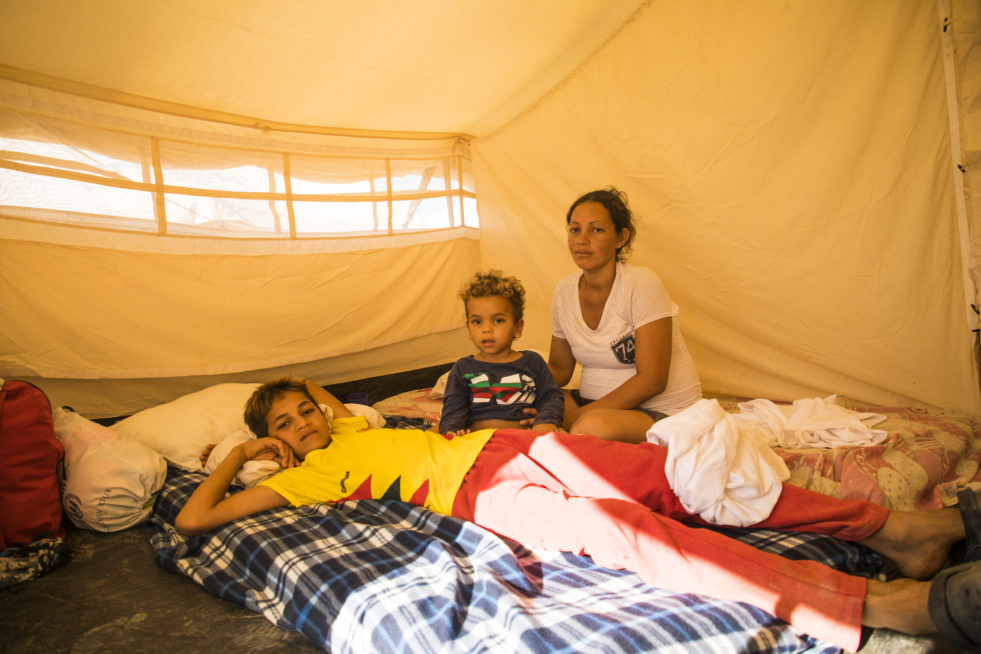
©UNHCR/Vincent Tremeau
After arriving in the Colombian city of Maicao last year, Karen lived on the streets for seven months with her sons Jesus, 14, and Christian, aged three.
“We slept anywhere we could,” the 32-year-old explained with a weary look on her face.
In addition to the dangers of life on the streets, there were health hazards. Christian became sick from contaminated water, and spent nearly two months in hospital. While there, Karen met UNHCR staff who were assessing the needs of vulnerable Venezuelan refugees.
“They asked me where we slept, what we ate and what our health needs were.”
A lack of health care is precisely why Karen and her children had to leave Venezuela.
Christian was born with hydrocephalus, an accumulation of fluid in the brain that causes swelling and a range of mental and physical disabilities. As a result of the impairment—which occurred when Karen contracted the Zika virus during pregnancy—Christian has never been able to talk or walk.
Karen took him to several physicians in Venezuela. However, as the country’s healthcare system collapsed and doctors and medicine became increasingly scarce, prospects for Christian’s treatment and recovery virtually disappeared.
Christian’s condition is a race against time: if he doesn’t receive medical assistance, including critical surgeries, he will likely be permanently impaired. And that dilemma forced Karen and her children from an increasingly deteriorating situation into months of hardship, in search of hope.
At the hospital in Maicao, as Christian was recovering from waterborne bacterial infection, UNHCR identified the family as extremely vulnerable. The agency offered shelter and other lifesaving support at UNHCR’s Integrated Assistance Centre which opened in March.
Families there receive a tent, three hot meals per day, clean water, daily activities for children and—to Karen’s relief—health care.
“As soon as we arrived here, I felt relaxed,” Karen said. “I finally felt safe.”
A dream deferred
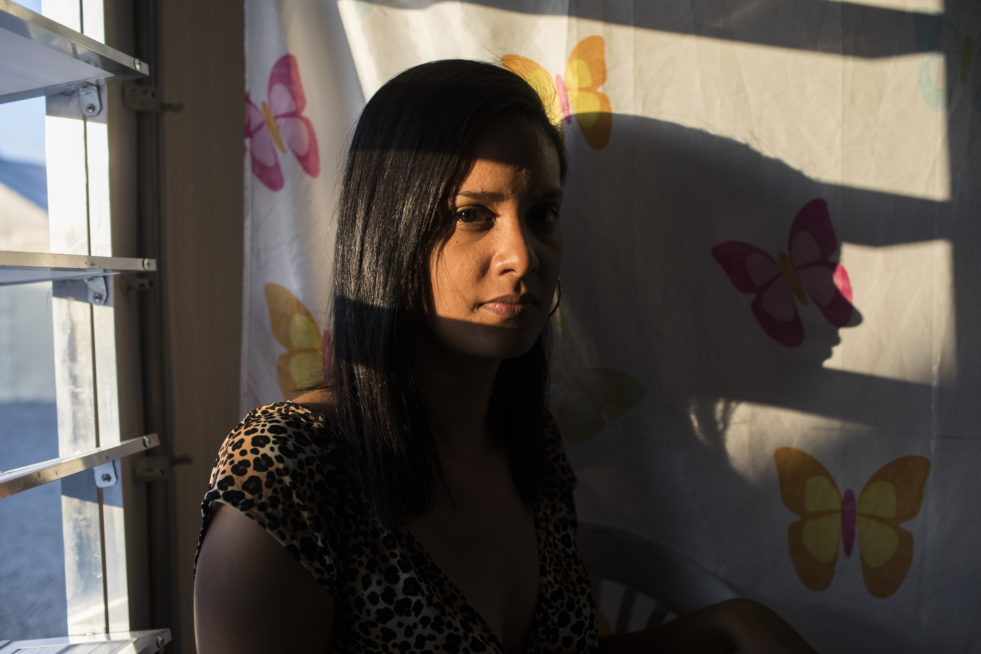
©UNHCR/Vincent Tremeau
Viviana was 24 years old when she received her dental license in Venezuela.
She worked different jobs to put herself through university. She had a new apartment and a bright future in one of Venezuela’s large cities.
That was before hyperinflation wrecked Venezuela’s economy. Before food shortages, lack of medical supplies and political violence threatened the lives of millions.
She now lives in Brazil, joining approximately 168,000 Venezuelans who’ve fled to that country.
When she first arrived in Boa Vista, Brazil, in 2016, she had saved enough money to afford a small apartment. Fearing for her family’s security, she returned to Venezuela soon afterward to bring her mother. But, as the crisis deepened and the influx of refugees grew, circumstances changed.
Unable to find sufficient work to keep paying rent, Viviana and her mother were forced to seek shelter elsewhere.
Now, they live at one of UNHCR’s 13 shelter facilities in the north of Brazil. Viviana and her mother share a Refugee Housing Unit (RHU)—a 17.5 square-metre shelter built from steel and plastic—with another woman who recently arrived. The RHU also features lockable doors and mosquito netting for safety, as well as solar-powered LED lights and plugs to charge electronic devices.
In the shelter facility, Viviana lives alongside hundreds of other Venezuelans who once led lives not so different than hers: They studied to earn university degrees. They worked hard to establish a profession. They are professionals like her who had to make the unimaginable choice to leave their country amidst catastrophic circumstances.
There’s a difference between this life and the one Viviana had once embarked upon. It still feels interrupted. And she still wishes that, someday, her dream can continue.
“I want to go back to a better Venezuela—not this Venezuela,” she said. “I want to thank UNHCR for the different ways they’ve helped. It’s not help forever. It’s just help to go on a little, for a while.”
“Our work is really helping people”
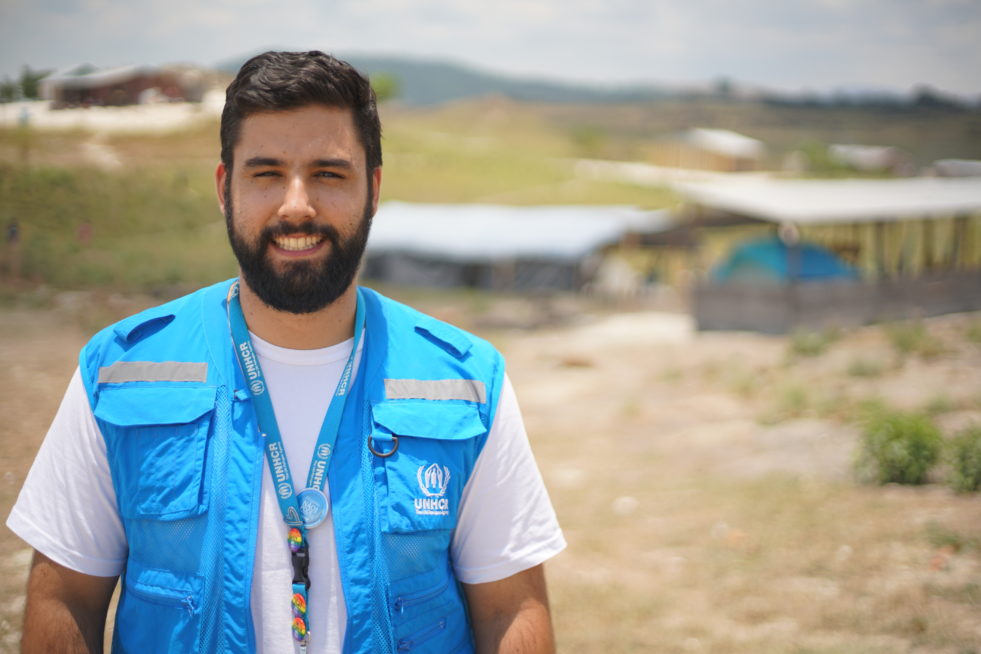
©UNHCR/Viktor Pesenti
Rafael Levy is the head of UNHCR’s field unit in Pacaraima, in northern Brazil, situated on the border with Venezuela. He shares some insight into UNHCR’s work on the ground supporting Venezuelans who have fled to the region.
What is a typical day for you?
At 7:45 a.m. we have our daily team meeting. We provide information, updates and distribute tasks. At 8 a.m., we open the registration and documentation centre (and) start receiving people.
We provide them with documentation, information about Brazil, their rights as asylum seekers. We provide them with information about the process. They can request asylum here at the border.
Registration, for us, is a protection tool. We identify people with very big vulnerabilities who cannot stay on the streets, otherwise they might die. We refer them to a transit shelter located here on the border, then transfer them to one of the shelters we have in Boa Vista, which is 200 kilometres south, which is a large city with more capacity to receive them.
What keeps you going under such difficult circumstances?
The amazing thing that keeps me motivated is that I can see that our work is really helping people and really making lives better.
What would you like to tell UNHCR supporters about the importance of supporting families fleeing from Venezuela?
For me, the situation in Venezuela is one of the worst forced migration crises we have seen in Latin America. People are crossing the border because they need to save their lives and the lives of their families. They’re often crossing the whole country on foot, facing dangerous journeys, facing enormous threats from armed groups and others there to block them and make their journey more difficult. They have no alternative.
Being able to provide resources and support for these people is essential. It’s life-saving.
What is UNHCR doing
- Providing core relief items such as shelter materials, blankets, mattresses, hygiene kits, cooking supplies, and other core relief items
- Providing cash assistance to promote self-reliance and local integration
- Seeking opportunities for children to resume their education
- Working closely with partners and host governments to improve reception conditions at borders, as well as to provide registration, information and documentation
To learn more about UNHCR’s work with Venezuelan refugees and how you can help, please visit unhcr.ca/venezuela

